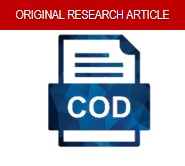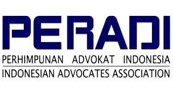National Payment Gateway (GPN) as an Instrument in Optimizing Income Tax Withdrawal on E-Commerce Transactions
DOI:
https://doi.org/10.46924/jihk.v1i2.124Keywords:
E-Commerce Transaction, Withdrawal of Income Tax (PPH), National Payment GatewayAbstract
Information Communication and Technology (ICT) has changed the form of traditional business to a digital-based business known as e-commerce. The development of e-commerce in Indonesia increases in size every year and affects the tax reception especially on the matter of income tax. The self-assessment system is a form of tax collection that emphasizes in recording, paying, and reporting incomes directly to businessmen. This causes many businessmen are considered not doing their tax liability. The National Payment Gateway (NPG) is an instrument that can record the incomes of businessmen for the benefit of income tax collection optimizations. However, there are currently no laws that specifically regulate records of businessmen incomes through NPG. This research is a descriptive analysis with the use of normative and empirical juridical approach. The results of the study indicate that the concept of withdrawing income tax (PPh) through the National Payment Gateway Instrument (GPN) requires a strong and concrete legal basis that regulates the requirements that must be met as an e-commerce business actor. In addition, it is also necessary to regulate cooperation between related institutions based on the Whole of Government theoretical approach in implementing the concept.
Downloads
References
Jurnal
Amelia, Cahyadini, and Oka Margana Indra. “Kebijakan Optimalisasi Pajak Penghasilan Dalam Kegiatan E-Commerce.” Jurnal Veritas Et Justitia 4, no. 2 (2018): 381–82. https://doi.org/10.25123/vej.v4i2.3071.
Anggit, Dyah Kusumastuti. “Penerapan Sistem GPN (Gerbang Pembayaran Nasional) Dalam Menungjang Transaksi Daring.” Jurnal Bisnis Dan Manajemen 6, no. 1 (2019): 59–61. https://doi.org/10.26905/jbm.v6i1.3035.
Aprianti, Ine, and Lucy Nurfadilah. “Tantangan Yang Dihadapi Oleh Perbankan Nasional Pada Aplikasi Financial Technology Berbasis Cashless (Studi Kasus Pada Pengguna Digital Payment Di Kota Bandung.” Bisnis Dan Iptek 12, no. 2 (2019): 68–78. https://jurnal.stiepas.ac.id/index.php/bistek/article/view/136.
Kusumastuti, Anggit Dyah, and Jane Rinelke Tinangon. “Penerapan Sistem GPN (Gerbang Pembayaran Nasional) Dalam Menunjang Transaksi Daring.” Jurnal Bisnin Dan Manajemen 6, no. 1 (2019): 56–64. https://doi.org/10.26905/jbm.v6i1.3035.
Lubis, Melisa Rahmaini. “Kebijakan Pengaturan Pajak Penghasilan Dan Pajak Pertambahan Nilai Terhadap Transaksi E-Commerce.” Jurnal Ilmiah Hukum Administrasi Negara 1, no. 1 (2017): 15.
Nugroho, Kristian Aji. “Pengaruh Cyber Attack Terhadap Kebijakan Cyber Security Amerika Serikat.” Journal of International Relations 4, no. 3 (2018): 93–401. http://ejournal-s1.undip.ac.id/index.php/jihi.
Nursita, Rizki Dian. “Cyberspace: Perdebatan, Problematika, Serta Pendekatan Baru Dalam Tata Kelola Global.” Dauliyah 4, no. 1 (2019): 80–99. http://dx.doi.org/10.21111/dauliyah.v4i1.2934.
Paramitari, Ni Nyoman Ayu, Ida Ayu Putu Widiati, and Luh Putu Suryani. “Analisis Yuridis Pemungutan Pajak Dalam Transaksi E-Commerce Di Indonesia.” Jurnal Analogi Hukum 1, no. 1 (2019): 114–19. https://ejournal.warmadewa.ac.id/index.php/analogihukum.
Rostan, Rostan, and Rahman Mus Abdul. “Pengaruh Perilaku Wajib Pajak, Sanksi Pajak, Self Assessment System Terhadap Kepatuhan Wajib Pajak Orang Pribadi.” PARADOKS: Jurnal Ilmu Ekonomi 2, no. 1 (2019): 22–38. https://jurnal.fe.umi.ac.id/index.php/PARADOKS/issue/view/51.
Sari, Ririn Puspita. “Kebijakan Perpajakan Atas Transaksi E-Commerce.” Akuntabel 15, no. 1 (2018): 67–72. http://journal.feb.unmul.ac.id/index.php/AKUNTABEL.
Utomo, Eviera Maharani. “Transaksi E-Commerce Sebagai Potensi Penerimaan Pajak Di Indonesia.” Jurnal Akutansi AKUNESA 2, no. 1 (2013): 1–20. https://jurnalmahasiswa.unesa.ac.id/index.php/jurnal-akuntansi/article/view/6516.
Buku
Glen, C. M. Controlling Cyberspace: The Politics of Internet Governance and Regulation. California: ABC-CLIO, 2017.
Kulesza, J, and R Balleste. Cyber Security and Human Rights in the Age of Cyberveillance. Maryland: Rowman & Littlefield, 2015.
Saksi, Nufransa Wira. Buku Pintar Pajak E-Commerce Dari Mendaftar Sampai Membayar. Jakarta: Visimedia, 2014.
Siti, Resmi. PerpajakanTeori Dan Kasus. Jakarta: Salemba Empat, 2019.
Sitompul, Asril. Hukum Internet Pengenalan Mengenai Masalah Hukum Di Cyberspace. Bandung: Citra Aditya Bakti, 2001.
Sitompul, Josua. Cyber Space Cyber Crimes Cyber Law Tinjauan Aspek Hukum Pidana. Jakarta: Tata Nusa, 2012.
Suparnyo. Hukum Pajak. Semarang: Pustaka Magister, 2012.
Suwarno, Yogi. Modul: Pelantikan Dasar Calon PNS Whole of Government. Modul Lembaga Administrasi Negara Republik Indonesia, 2017.
Peraturan Perundang-undangan
Indonesia. Pasal 4 Undang-Undang No. 36 Tahun tentang Perubahan Keempat atas Undang-Undang No. 7 Tahun 1983 tentang Pajak Penghasilan (2008).
Internet
Azzura, Siti Nur. “Transaksi E-Commerce Indonesia Diprediksi Capai Rp 913 Triliun Di 2022.” Merdeka, 2019. https://www.merdeka.com/uang/transaksi-e-commerce-indonesia-diprediksi-capai-rp-913-triliun-di-2022.html.
Bastamanography. “Mengenal Gerbang Pembayaran Nasional,” 2019. https://www.bastamanography.id/mengenal-gerbang-pembayaran-nasional/.
Hutauruk, Dina Mirayanti. “Transaksi Kartu Debit Berlogo GPN Semakin Meningkat,” 2019. https://keuangan.kontan.co.id/news/transaksi-kartu-debit-berlogo-gpn-semakin-meningkat?page=all.
Latief, Muhammad. “Belajar Soal Memajaki Transaksi E-Commerce Dari Tetangga,” 2019. https://www.aa.com.tr/id/analisis-berita/belajar-soal-memajaki-transaksi-e-commerce-dari-tetangga/941706.
Laucereno, Sylke Febrina. “Sri Mulyani Akan Pakai Gerbang Pembayaran Nasional Untuk Rekam Pajak,” 2019. https://finance.detik.com/berita-ekonomi-bisnis/d-3753919/sri-mulyani-akan-pakai-gerbang-pembayaran-nasional-untuk-rekam-pajak.
Finansialku. “Peluncuran Gerbang Pembayaran Nasional (GPN), Pertanda Sistem Transaksi Tunggal Dimulai,” 2019. https://www.finansialku.com/gerbang-pembayaran-nasional-gpn-sistem-transaksi/.
Petriella, Yanita. “Kemendag Lirik E-Commerce Untuk Ekspor.” ekonomi.bisnis.com, 2019. https://ekonomi.bisnis.com/read/20190412/12/911141/kemendag-lirik-e-commerce-untuk-pacu-eksporm.
Setiawan, Sakina Rakhma Diah. “Transaksi Kartu GPN TembusRp 6,21 Triliun Hingga Juli 2019,” 2019. https://money.kompas.com/read/2019/08/15/162818026/transaksi-kartu-gpn-tembus-rp-621-triliun-hingga-juli-2019.
Startup Ranking. “Startup Ranking, ‘Countries,’” 2019. https://www.startupranking.com/countries.
Wahyudi, Eko. “Bank Indonesia: TransaksiE-Commerce per Bulan Capai Rp 13 T.” Majalah Tempo, 2019. https://bisnis.tempo.co/read/1274672/bank-indonesia-transaksi-e-commerce-per-bulan-capai-rp-13-t.
Walfajri, Maizal. “Bank Indonesia Memproyeksikan 20 Juta Kartu GPN Telah Terdistribusi Sepanjang 2018,” 2019. https://keuangan.kontan.co.id/news/bank-indonesia-memproyeksikan-20-juta-kartu-gpn-telah-terdistribusi-sepanjang-2018.
Wijaya, Andy. “Pemungutan Pajak Atas Transaksi E-Commerce (Online),” 2019.
Yudha, Pratomo. “APJII: Jumlah Pengguna Internet Di Indonesia Tembus 171 Juta Jiwa.” Kompas. Accessed April 19, 2019. https://tekno.kompas.com/read/2019/05/16/03260037/apjii-jumlah-pengguna-internet-di-indonesia-tembus-171-juta-jiwa.
Wawancara
Maulana, Ikhwan Nul Yusuf. “Wawancara Dengan Founder & Managing Director Bizlook.” 2019.
Usama. Wawancara Dengan Pelaksana Seksi Peraturan PPh Orang Pribadi, Subdit Peraturan PPh Dan PPh Orang Pribadi, Unit Direktorat Peraturan Perpajakan II Kantor Pusat Direktorat Jenderal Pajak, 2019.
Downloads
Published
How to Cite
Issue
Section
License
Authors who publish with this journal agree to the following terms:
- Copyright on any article is retained by the author(s).
- The author grants the journal, the right of first publication with the work simultaneously licensed under a Creative Commons Attribution License that allows others to share the work with an acknowledgment of the work’s authorship and initial publication in this journal.
- Authors are able to enter into separate, additional contractual arrangements for the non-exclusive distribution of the journal’s published version of the work (e.g., post it to an institutional repository or publish it in a book), with an acknowledgment of its initial publication in this journal.
- Authors are permitted and encouraged to post their work online (e.g., in institutional repositories or on their website) prior to and during the submission process, as it can lead to productive exchanges, as well as earlier and greater citation of published work.
- The article and any associated published material is distributed under the Creative Commons Attribution 4.0 International License




 Sinta ID:
Sinta ID: 


















